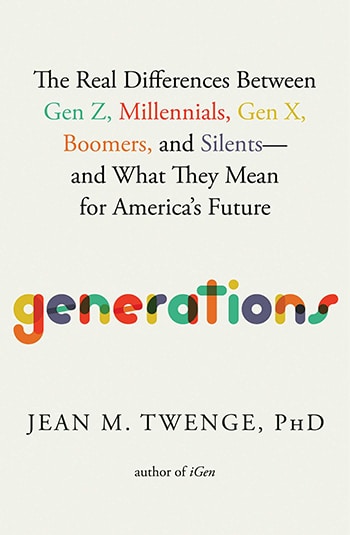Different generations love to cast aspersions on each other. Boomers think Millennials and Gen Zers are fragile narcissists. Those younger generations think that Boomers are selfish, closed-minded pinheads who helped themselves to economic success and then pulled the ladder out for everyone else. But are these and other generational stereotypes true? Here to unpack that question for us is Jean Twenge, a professor of psychology and the author of Generations: The Real Differences between Gen Z, Millennials, Gen X, Boomers, and Silents—and What They Mean for America's Future. We begin our conversation with some background on the study of generations and why Jean thinks the Strauss-Howe theory of generational cycles has been disrupted. We then work our way through the generations, from the Silent Generation to the present, and talk about the characteristics and particular challenges of each cohort. We dig into the myths and truths of the generations, such as whether Boomers are doing financially well and Millennials are doing financially poorly. We talk about why Gen X gets overlooked, why there's such a sharp break between Millennials and Gen Z, why Gen Zers are taking longer to get their drivers' licenses and feel darkly pessimistic, and much more.
Different generations love to cast aspersions on each other. Boomers think Millennials and Gen Zers are fragile narcissists. Those younger generations think that Boomers are selfish, closed-minded pinheads who helped themselves to economic success and then pulled the ladder out for everyone else.
But are these and other generational stereotypes true? Here to unpack that question for us is Jean Twenge, a professor of psychology and the author of Generations: The Real Differences between Gen Z, Millennials, Gen X, Boomers, and Silents—and What They Mean for America’s Future. We begin our conversation with some background on the study of generations and why Jean thinks the Strauss-Howe theory of generational cycles has been disrupted. We then work our way through the generations, from the Silent Generation to the present, and talk about the characteristics and particular challenges of each cohort. We dig into the myths and truths of the generations, such as whether Boomers are doing financially well and Millennials are doing financially poorly. We talk about why Gen X gets overlooked, why there’s such a sharp break between Millennials and Gen Z, why Gen Zers are taking longer to get their drivers’ licenses and feel darkly pessimistic, and much more.
